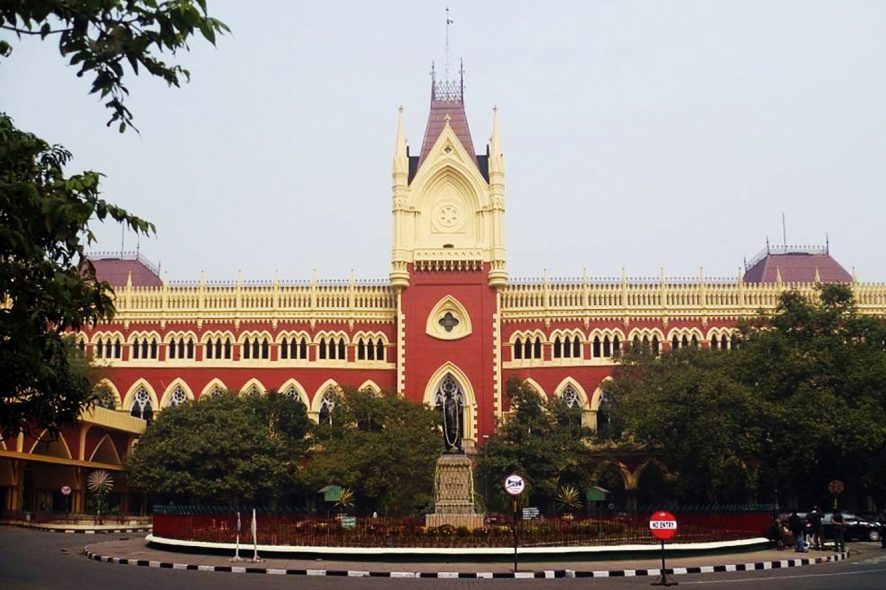Calcutta High Court: Shampa Sarkar, J. decided on a petition which was filed for a direction upon the respondents 7 and 8 to cancel and/or quash the notice dated April 6, 2022, with regard to handing over the possession of the ferry ghat to the Pradhan of the Mahanandatola Gram Panchayat, upon expiry of the lease of the petitioner.
Petitioner was the operator of Kosi Passengers Ferry Ghat. The lease period of the petitioner had been ended on 31-03-2022. The petitioner submitted that until ferry ghat was settled by way of an open tender, the petitioner must be allowed to operate.
The Court found that the rules with regard to the settlement of the ferry ghat and the circulars issued in this behalf did not permit continuation after expiry of the lease. The Court clarified that the authority can make a stop-gap arrangement under emergent situation but Court sitting in judicial review under Article 226 of the Constitution of India, cannot direct the authorities to allow the petitioner to operate until the open tender is finalised.
Petitioner also submitted that the Pradhan did not have any right to ask the petitioner to hand over possession of the concerned ferry ghat as the water body over which the ferry services were carried on, spread over more than 5 acres and such settlement cannot be made by the concerned Gram Panchayat.
Advocate appearing on behalf of the Pradhan, submitted that the Gram Panchayat had approached the Block Development Officer to permit a public auction of the said ferry ghat. However, he submitted that no decision had been taken with regard to operation of the ferry ghat in the interim period.
Senior Government Advocate submitted that the ferry ghat was settled in favour of the petitioner by the concerned Gram Panchayat, which meant that the area of the water body must not have exceeded 5 acres.
The Court was of the view that the panchayat authorities themselves, had decided that the ferry ghat should be settled by public auction, such a policy decision cannot be interfered with under Article 226 of the Constitution of India. Transparency and maximisation of the revenue by allowing all eligible persons to participate in such tender is the correct method. The Court believed that it does not have any authority to either set aside the auction or to hold the policy of the authority to be bad in law, for the following reasons:
a) Judicial review of an administrative decision is permitted only when the decision making authority does not act in accordance with law or acts arbitrarily and with mala fide intentions relying on the judgment of Supreme Court in Tata Cellular v. Union of India, (1994) 6 SCC 651 where principles with regard to judicial review of administrative action were laid down.
b) The auction notice has been issued as a policy decision and the court must refrain from interfering with the policies of the Government. There are no allegations of unreasonableness, arbitrariness and favouritism. The petitioner was himself awarded the settlement through a public auction which was held when the pandemic was in the rise relying on the decision in Directorate of Film Festivals v. Gaurav Ashwin Jain, (2007) 4 SCC 737 where it was made clear that it was a settled law that policy decisions of the State were not to be disturbed unless they were found to be grossly arbitrary or irrational.
c) The idea of open auction is to ensure maximization of revenue and the panchayat samity cannot be faulted for having taken a policy decision to go for open auction when the pandemic situation has improved considerably and normalcy has resumed in every aspect of life.
The Court finally relying on Goa Foundation v. Sesa Sterlite Ltd., (2018) 4 SCC 218 and Centre for Public Interest Litigation v. Union of India, (2012) 3 SCC 1 held that the panchayat authorities have decided to go for a public auction, the competent authority under the law, shall go for a public auction, at the earliest, and all eligible bidders including the petitioner shall be entitled to participate. Prayer for extension of the lease of the petitioner during the stop gap period could not be granted by the court.[Azizur Rahaman v. State of West Bengal, 2022 SCC OnLine Cal 921, decided on 13-04-2021]
Mr Gazi Faruque Hossain,Mr Debasish Kundu, Ms Priyanka Mondal: for the petitioner
Mr Lalit Mohan Mahata,Mr Prasanta Behari Mahata: for the State
Mr Sufi Kamal: for the respondent 8







